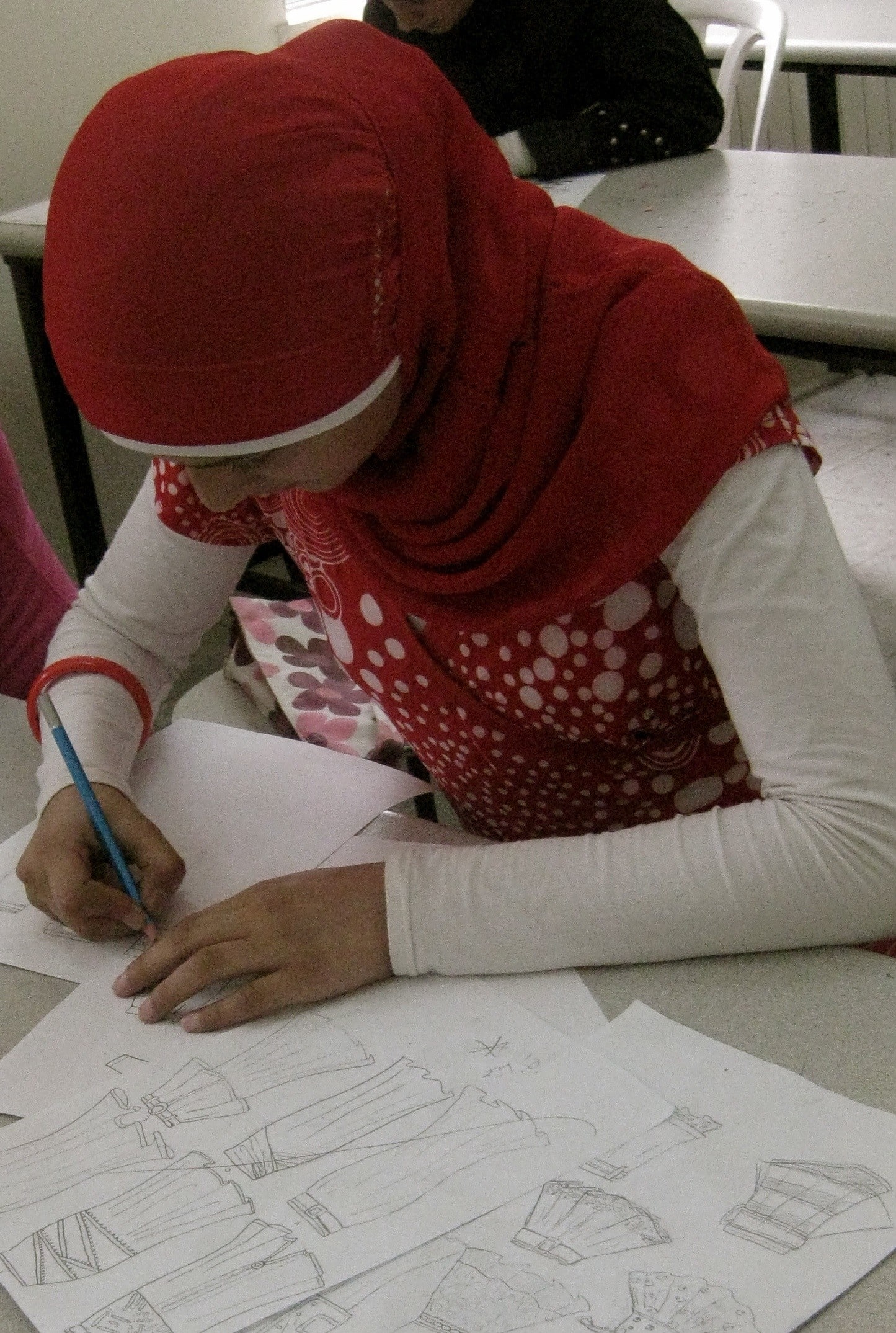
Forty-six women of the West Bank town Bethlehem have begun a new trade. Last Monday, August 3rd, marked the inauguration of a series of courses in textile production for Palestinian women, taking place in the Fashion and Textile Industry (FTI) workshops. This program is funded by the Regional Government of Madrid and FPSC. Before classes began, the future professionals attended an orientation session. Simon Awad, director of the FTI, explained how 400 Palestinian women will benefit from the training courses in the program’s duration, allowing them to enter the labor market, and thereby drive the economic development of the region and the quality of life for an estimated 2,600 people.
The beneficiaries of the program are women from the Bethlehem area who have been selected from its most underprivileged sectors. In the region, it is common for women to carry heavy burdens for their families, which have an average of six children, and thus it is vital for them to earn sustainable incomes. The participants of the program are heads of their households, women who live below the poverty line, or women who have been unemployed for at least one year. The women will attend four months of classes in which they will learn to design, cut, make patterns and sew, enabling them to see their creations through from start to finish.
This Monday, August 10th, the women chose one course to take first, and the training began.
“There are seven types of sewing machines you have to master,” one instructor explained to her students. Yet far from being intimidated, the women are eager to learn, some openly showing their gratitude for the opportunity. “I want to specialize in a new type of fashion,” declared Wala, an enthusiastic teenager from nearby Beit Hanina.
The Project Director, Eillya Constantinides, has been entrusted by the local partner, Caritas Jerusalem, to be on charge of the program. The FPSC delegates, Sofia Sainz de Aja and Micaela O’Herron, attended the events to welcome the participants and explain the support of CAM and FPSC for the project.
The Second Intifada in the year 2000 dealt a hard blow to the already-suffering economic and social situations in Bethlehem. Tourism fell due to insecurity in the zone, and the subsequent construction of the Separation Wall in 2002 brought many families to ruin. Currently the population of Bethlehem and the surrounding villages is 180,000, of whom 15,000 live in refugee camps. The rate of unemployment is severe, at 58% in 2007 among women above 15 years old. For this reason, these courses in textile production present a unique opportunity for these women to secure a livelihood and hopes for a better future.

